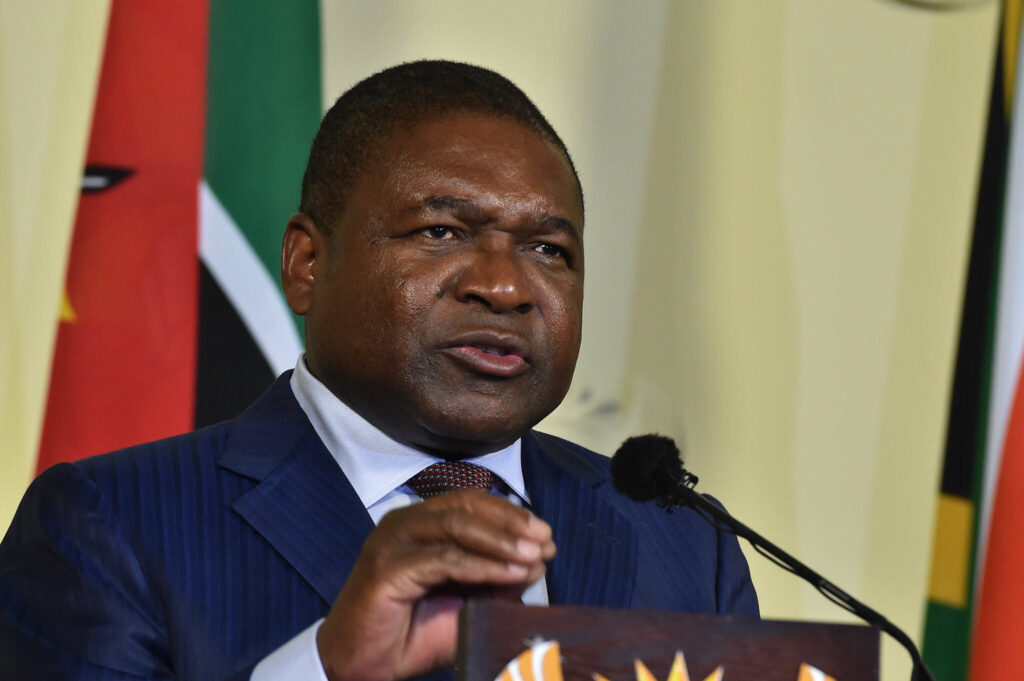AS the Southern African Development Community (Sadc) struggles to clear hurdles to deploy its standby force into Mozambique to help fight the deadly Islamist insurgency in Cabo Delgado province, it is becoming increasingly clear that Maputo is only interested in limited bilateral military help, not a regional intervention.
BERNARD MPOFU
As previously reported by The NewsHawks in detail, Mozambican President Filipe Nyusi said in a speech two weeks ago that the situation was under control. He categorically opposed the plan of foreign troops getting involved in combat in the conflict.
This came as Mozambican Prime Minister Carlos Agostinho do Rosário, speaking to parliament on 21 April, tried to sidestep the debate and downplay the issue of foreign military deployment, while confirming bilateral regional arrangements.
Rosario acknowledged that Mozambique is already receiving some forms of military support from its Sadc neighbours, although he declined to elaborate on the details and nature of the support. Instead, he seemed intent on making the argument that the nature of foreign military support is not a suitable topic for public debate because it involves disclosing details of military matters.
As reported by The NewsHawks recently amid feeble official denials, Zimbabwe has already deployed special forces into Mozambique to help fight the jihadists calling themselves Al-Shabaab, an insurgent group that has an unclear affiliation with the Islamic State, although not related to Al-Shabab in Somalia.
While Nyusi is subtly opposed to foreign intervention, Renamo leader Ossufo Momade last week called for direct intervention in Cabo Delgado by Sadc countries, saying the Frelimo government was not as concerned about national sovereignty as it appears to be now as it previously invited foreign troops to help fight the rebel movement during the Mozambican civil war.
Echoing Nyusi’s sentiment, Frelimo secretary-general Roque Silva, in contrast, told reporters that foreign troops would not be effective in Cabo Delgado. He said Mozambique only needed logistical support for its troops battling insurgents.
Security sources have told The NewsHawks that Nyusi thinks inviting foreign troops into Mozambique would undermine its sovereignty, regionalise the conflict and invite more terrorists into it, expose shortcomings of his poorly-trained army and lay bare the root causes of the war to outsiders, which are largely local, when his narrative largely locates them outside.
Nyusi emphasises foreign sponsorship of the insurgents and not local conditions which have bred the uprising.
In his speech, during the recent double Sadc troika meeting on 8 April in Maputo — the meeting of the main body troika, Mozambique, Tanzania and Malawi, and the troika of the organ on politics, defence and security which comprises Botswana, South Africa and Zimbabwe — he highlighted external factors more than domestic issues.
Despite do Rosário’s attempts to downplay military matters, the foreign intervention debate came against the backdrop of a leaked Sadc deployment which has been met with vociferous criticism from some sections of Mozambican civil society.
The Centre for Democracy and Development (CDD) has criticised the plan, calling the deployment move “inappropriate”, while also slamming the Sadc technical assessment team for not meeting with civil society and independent experts.
The Sadc technical team visited Mozambique from 15 April to 21 April. It drew a plan for the deployment of 2 916 personnel, including 140 special forces, as well as seven helicopters, five fixed-wing manned aircraft, four drones, two surface patrol ships, and a submarine.
The bulk of the forces – 1 860 troops in all – would come in the form of three light infantry battalions.
According to Cabo Ligado weekly, “the proposed distribution of forces – over 2 000 infantry and special operations forces all told, supported by seven helicopters – suggests an operations plan very similar to the one currently employed by Mozambican forces, in which ground forces move mostly by road and conduct limited dismounted patrols.
“The maritime aspect of the proposed deployment, however, would offer a significant augmentation of the Mozambican military’s current capacity at sea, potentially improving Mozambique’s ability to counter insurgent littoral operations. The proposal would also increase Mozambique’s intelligence and reconnaissance capabilities, largely through added intelligence-gathering platforms,” it says.
CDD said the proposed deployment is “almost [the size of] a Mozambican army,” and would likely destabilise combat operations while providing no solutions to the social and humanitarian crises at the centre of the conflict. The technical team was led by Botswana Brigadier Michael Mukokomani and also included representatives from Angola, South Africa, Malawi, Tanzania, and Zimbabwe. There was no Mozambican representative.
To address the perceived regional threat, the team presented two plans. The first is a deployment of Sadc forces (at a level the report describes as “minimal”) to Cabo Delgado to “support [the Mozambican military] to neutralise the terrorists in the Area of Operation.”
The second is a training and logistical support package that would keep foreign troops out of the combat zone in Mozambique. The team recommended pursuing both plans simultaneously, bringing in foreign troops to help with the fighting while standing up the training mission.
The technical report was supposed to be presented to the troika of the Sadc organ on politics, defence and security cooperation in Maputo yesterday. The Sadc ministerial committee of the organ troika met in Maputo on Wednesday to discuss the technical report.
However, the Sadc organ troika meeting expected to approve the report and deployment was postponed, further showing that Nyusi and his government are stalling the foreign intervention process.

